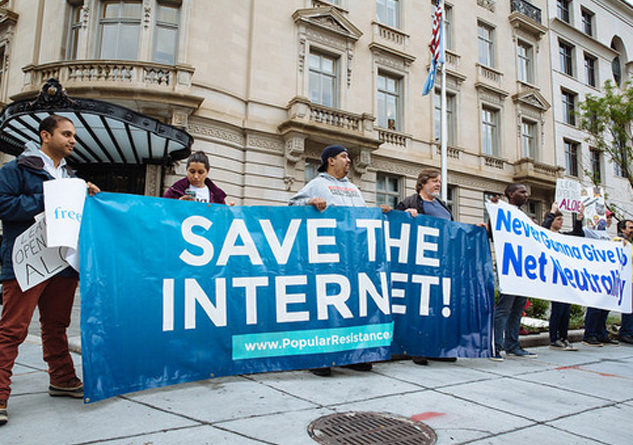Eric Tegethoff
Public News Service
PORTLAND, Ore. – Internet users are asking the Federal Communications Commission not to hit “undo” on net neutrality this week, with a day of action to save the Internet, which took place Wednesday July 12, 2017.
Even companies such as Facebook, Amazon and Google are getting in on the action, bringing awareness to the issue of a free and open Internet. Steven Renderos, organizing director for the Center for Media Justice, said the main concern of net-neutrality proponents is that without it, Internet service providers (ISPs) such as Comcast and AT&T could create “fast lanes” for certain websites.
“The Internet that they would love to be able to create is an Internet that reflects more like cable TV,” he said. “Right now, when you pay your Internet service provider, you’re paying for access to the entire Internet – it’s not to just a subset of the Internet.”
In May, the FCC proposed rolling back an Obama-era rule that regulates ISPs like utilities, meaning providers can’t block or throttle access to certain websites. FCC Chairman Ajit Pai has said regulation of ISPs as utilities hampers innovation and investment. The public comment period on Pai’s proposal is open until Monday.
Renderos said net neutrality has been important to social movements such as Black Lives Matter and the Dakota Access Pipeline protesters, both of which have gone online to organize dissent – and the current system guarantees that all voices are equal online. He also pushed back on Pai’s claim that net neutrality would stifle innovation, saying the opposite is true for new and competing websites.
“Not only is this good for political speech, but this is the main economic engine behind the Internet,” he said. “This is the reason why hundreds of tech startups are saying, ‘We need this to survive.’ Otherwise, the bigger companies – the Facebooks of the world, the Googles of the world – can easily box them out.”
The public can comment on the proposal at fcc.gov. The FCC already has received nearly 6 million comments on the topic. The number could soar today as companies direct users to the public comment page.






